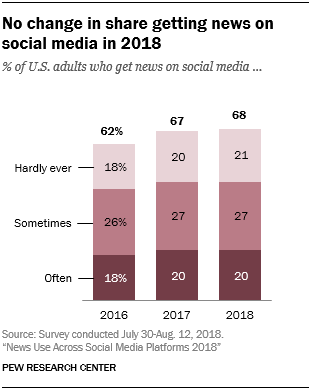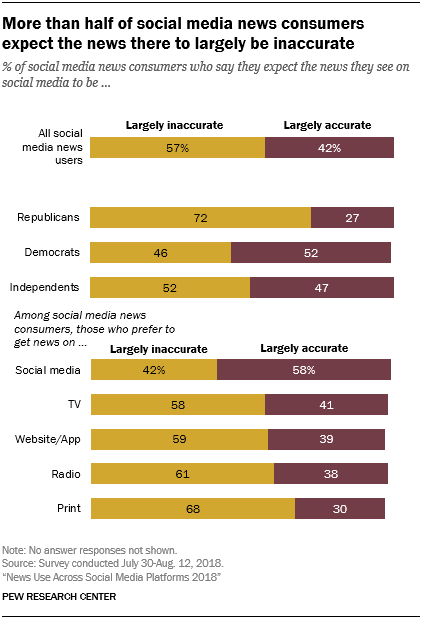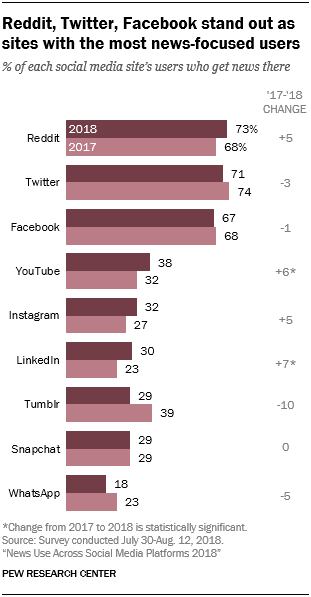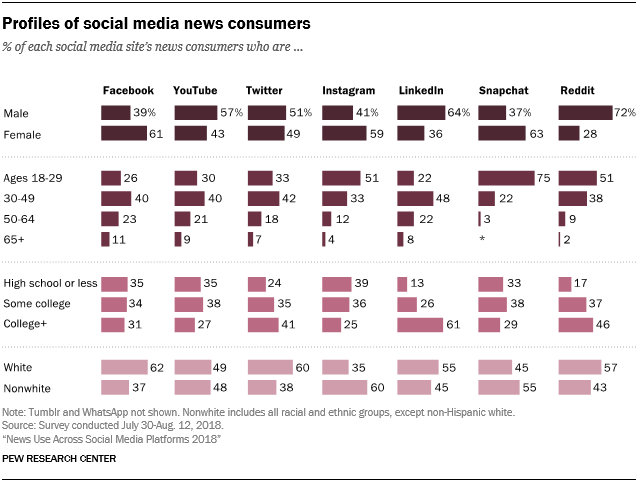Lots of news on social media? Yep. Lots of accurate news on social media? Nope: That’s the mindset of the typical U.S. news consumer in 2018, according to a new Pew Research Center report on news use on social media platforms.
Around two-thirds of U.S. adults say they get news from social media. (That figure is just about flat compared with 2017.) But 57 percent say they expect the news on social media to be “largely inaccurate.” (Pew interviewed 4,581 U.S. adults.)

Convenience (cited by 21 percent of respondents), interacting with other people, speed, and timeliness are the top reasons that news consumers like getting the news from social media. The top-cited reason to dislike news from social: Inaccuracy.
Silver lining? More respondents said accessing news on social media has helped them (36 percent) than that it has confused them (15 percent).
But there are differences between political parties. Forty-two percent of Democrats say their social media news habits have helped their understanding of current events, compared to 24 percent of Republicans who say the same thing. More than 70 percent of Republicans say they expect the news on social media to be inaccurate; 52 percent of independents and 46 percent of Democrats feel the same.

Reddit, Twitter and Facebook stand out as the sites where the highest portion of users are exposed to news — 67 percent of Facebook’s users get news there, as do 71 percent of Twitter users and 73 percent of Reddit users. However, because Facebook’s overall user base is much larger than those of Twitter or Reddit, far more Americans overall get news on Facebook than on the other two sites.

But each platform’s user base is different. Pew has a handy reminder chart about “who” is really on Facebook, LinkedIn, etc. (Two bits that stood out to me: Twitter is the network with the best gender parity and Instagram and Snapchat are the only two with majority-minority user bases.)
